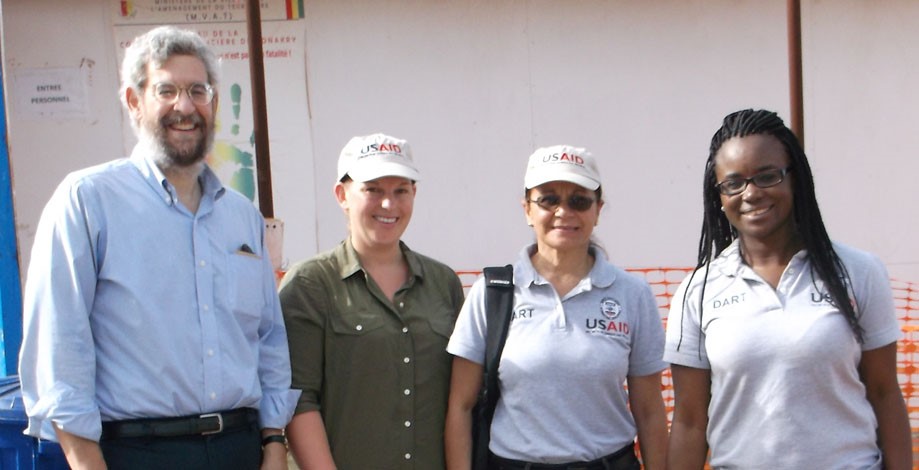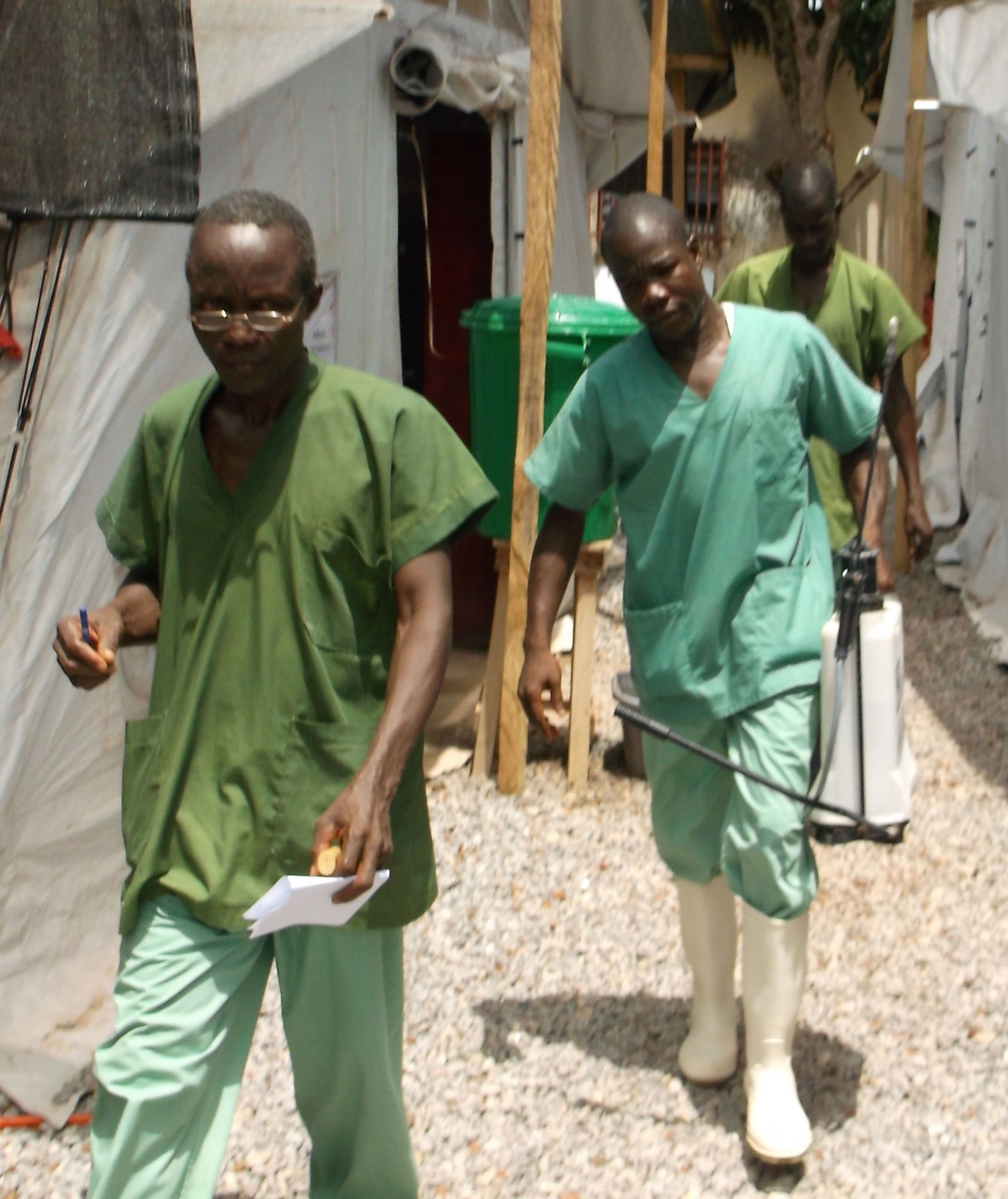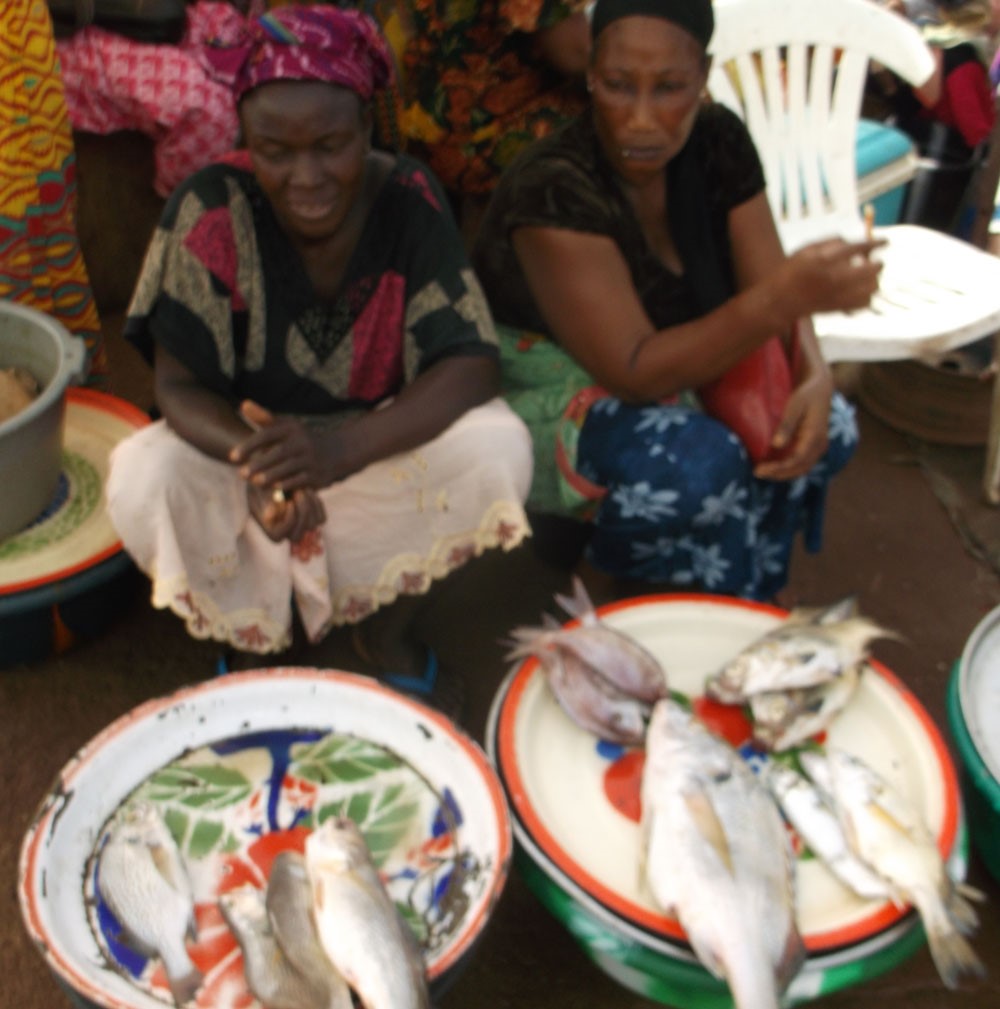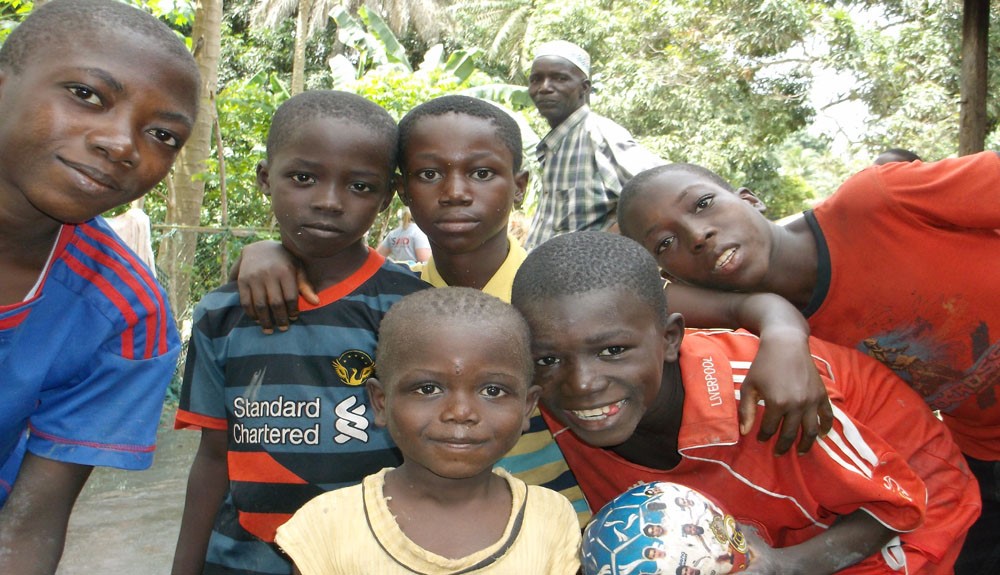NIMHD Program Official Assists in Ebola Effort in Guinea
Dr. Rick Berzon, a health scientist administrator at NIMHD, recently returned from a three-month detail in Conakry, Guinea, West Africa, where he assisted the U.S. Centers for Disease Control and Prevention's (CDC) USG (United States Government) Ebola Response effort. Health care workers across the U.S. Department of Health and Human Services (HHS) are on the frontlines fighting the Ebola epidemic in West Africa in efforts to stem the tide of this epidemic. In this Q&A, Dr. Berzon shares details about his experience.

Q: What led to your decision to volunteer?
A: It was important. Developing countries don't have infrastructure and they are losing people quickly from Ebola. The CDC needed help containing the epidemic in Guinea. It seemed like a "no brainer" to help out. I knew what I was getting into because I've done international health work in the past. I've also worked across other agencies in the past, so I know how collaboration across USG agencies is supposed to work; and that it can be problematic if that collaboration doesn't work well.
Q: How were you selected for this deployment?
A: HHS and the CDC sent out a request for individuals who have worked in international health in the past, and who understand field epidemiology and infectious disease prevention and control and who are able to deploy for a minimum of 6 weeks. I "answered the call" because I've done quite a lot of work overseas in developing countries. I worked for USAID (U.S. Agency for International Development) as a senior HIV/AIDS technical advisor for public health programs under PEPFAR (The President's Emergency Plan for AIDS Relief) and regularly went into East and South Africa to do monitoring and evaluation of PEPFAR-funded programs. Initially, the CDC contacted me to go to Sierra Leone, but when they learned I spoke French, they asked if I would go instead to Guinea.
Q: What preparation were you required to do?
A: I completed security training through the U.S. Department of State, including computer modules on what to do in the event of an explosion or a kidnapping. I also completed physical and mental health assessment forms and attended briefings at CDC headquarters in Atlanta on security; and to get up to speed on the status of the Ebola epidemic in West Africa. I was given a lot of equipment and travel gear including a first aid kit, a BlackBerry, a computer, a poncho, mosquito and bed netting and boots for the rainy season.

Q: How long were you deployed and what were your duties?
A: I started at the CDC in Atlanta on April 20 and finished July 14. In my role as the Associate Director for Science, I evaluated the evidence base for policy and program activity to ensure that the in-country programs were based on sound science. I examined the relevance and utility of research with respect to policy and program needs, including providing comments on study designs in support of clinical therapeutic studies, vaccine trials and social science initiatives. I reviewed the CDC's MMWR (Morbidity and Mortality Weekly Report) draft papers and related narratives and findings in support of their publication in scientific journals. I was regularly in contact with international (e.g., World Health Organization [WHO], International Federation of Red Cross and Red Crescent Societies [IFRC]) and national (e.g., Government of Guinea Ministry of Health) offices and organizations that support the Ebola response effort in Guinea.
In addition, I served as the CDC-USAID DART (Disaster Assistance Response Team) Liaison. In that role, I linked with DART staff daily to keep track of in-country projects and funding mechanisms; coordinated with CDC teams (epidemiology, infection control and prevention, operations, labs and outreach and communications) and DART members on activities to support in-country Ebola virus disease response efforts; responded to requests for information across CDC and DART to facilitate communication and cooperation; and conducted field visits to the various response sites to assess program operations and provide assistance on the implementation of response activities.
Q: What was your most memorable experience?
A: I'll remember the 4th of July weekend of 2015. We had traveled by boat from Kamsar to Banira, an island in the north, to learn how familiar the locals there were with the Ebola outbreak. We were given inaccurate information about when the tide was supposed to go out, and as a consequence of that, our boat was taken out with the tide and there was not enough river water to float it. We (there were 6 of us) spent the night on that island with little food, water or communications equipment. The local village people were very welcoming and friendly to us, fed us, and found a place for us to sleep that night.

Q: What were the outcomes of your deployment and the Ebola effort there?
A: I supported the start-up of the ZMapp therapeutic trial in Guinea that had already begun to accrue participants in Liberia and Sierra Leone. The trial was being conducted to establish the efficacy of the drug. I worked with NIAID staff to identify an Ebola Treatment Unit that would be able to conduct the research, as clinical research in a developing country can be very tricky. By the time I departed the country, six patients had been recruited for the study. I also became involved with vaccine research. NIH is supportive of a collaborative effort to identify a common vaccine design that can be employed across Sierra Leone, Liberia and Guinea.

Q: How has this experience impacted you professionally and personally?
A: It's always nice to use skills you have that you don't regularly get to use, such as field epidemiology and management. I very much enjoy working in challenging circumstances because I like challenging myself; and I especially enjoy working in developing countries. I learn new things about myself and about other countries and cultures and how to effectively coordinate initiatives so we can achieve success in whatever we're doing.
For more information, please contact Gerda Gallop-Goodman at Gerda.GallopGoodman@nih.gov.

















